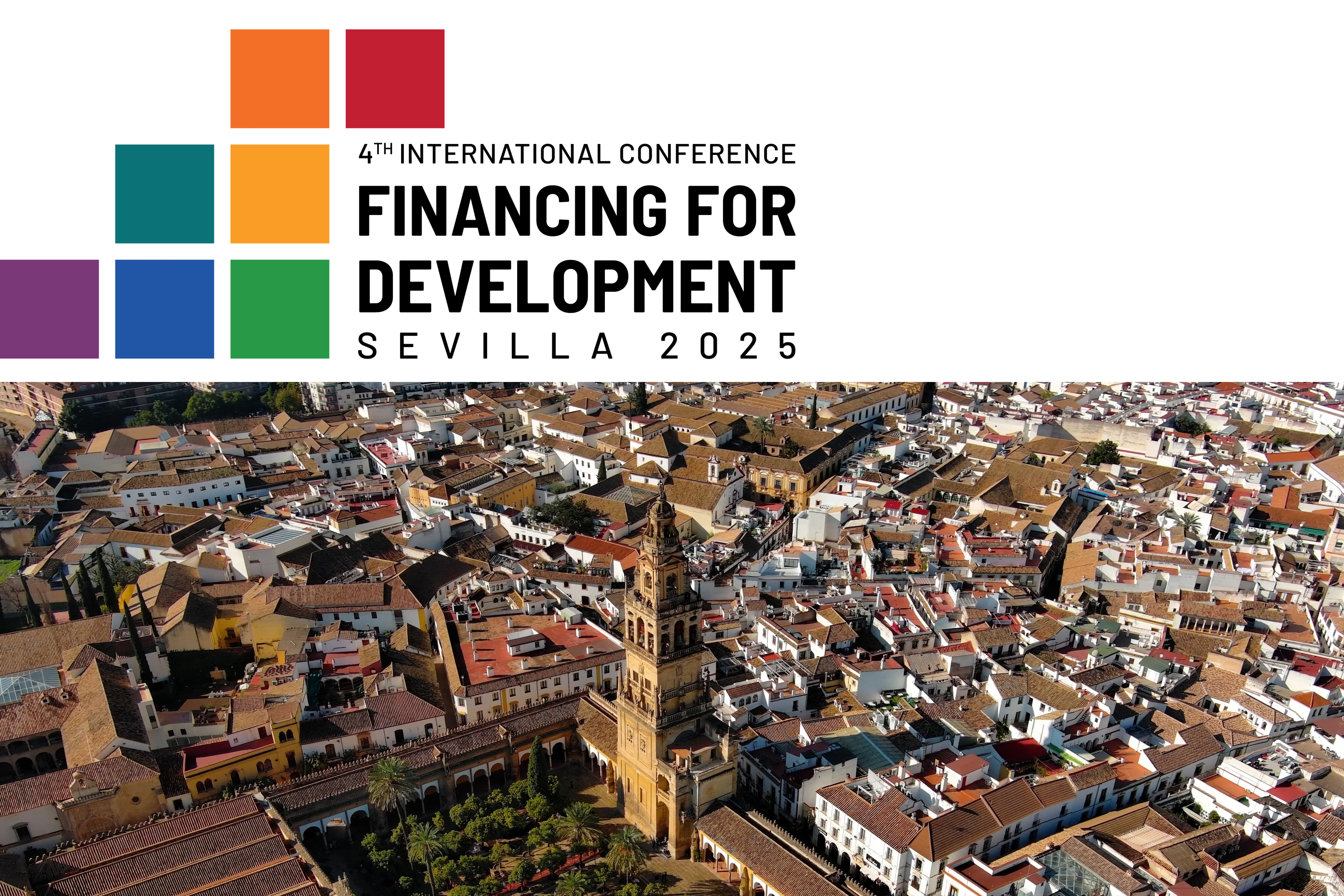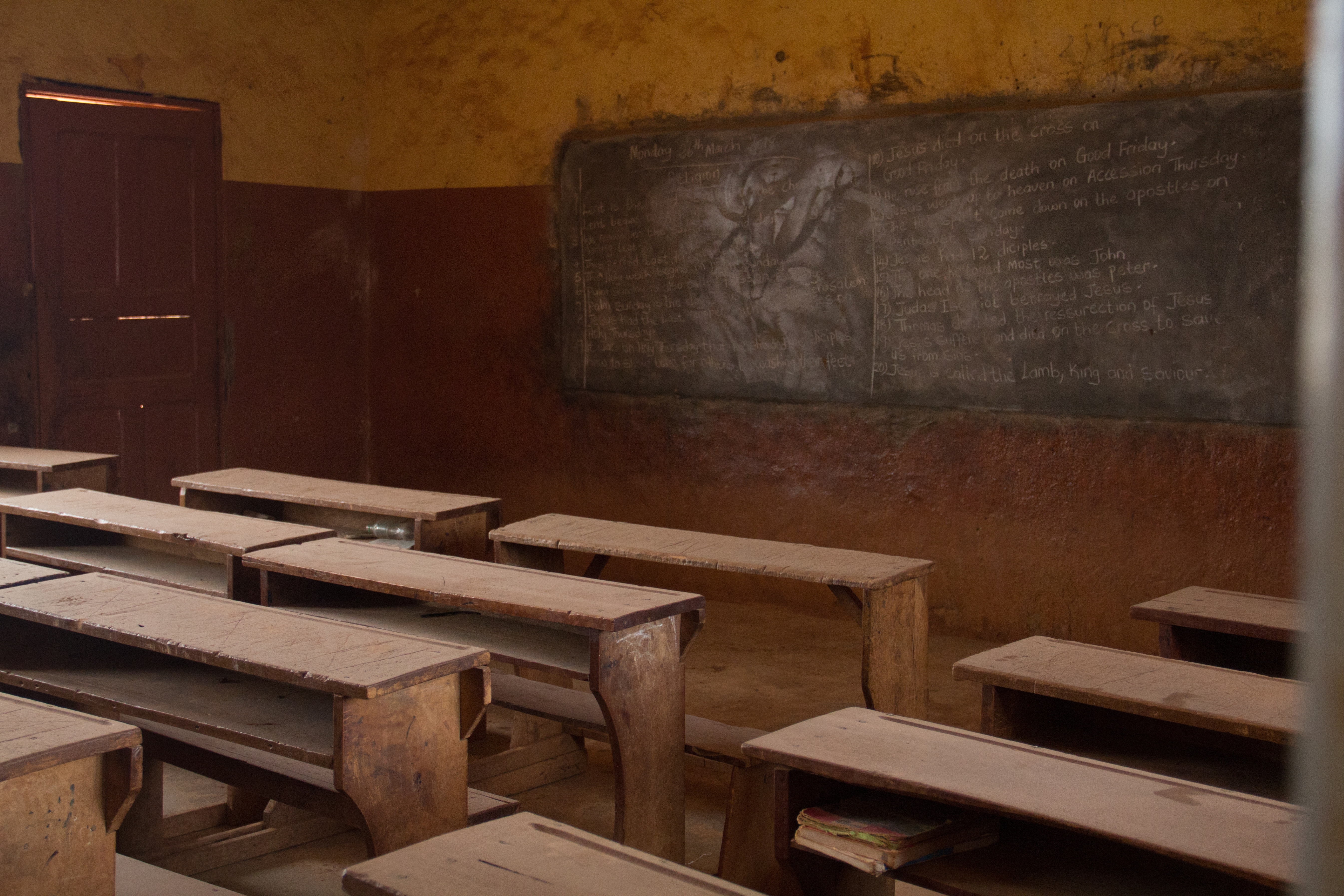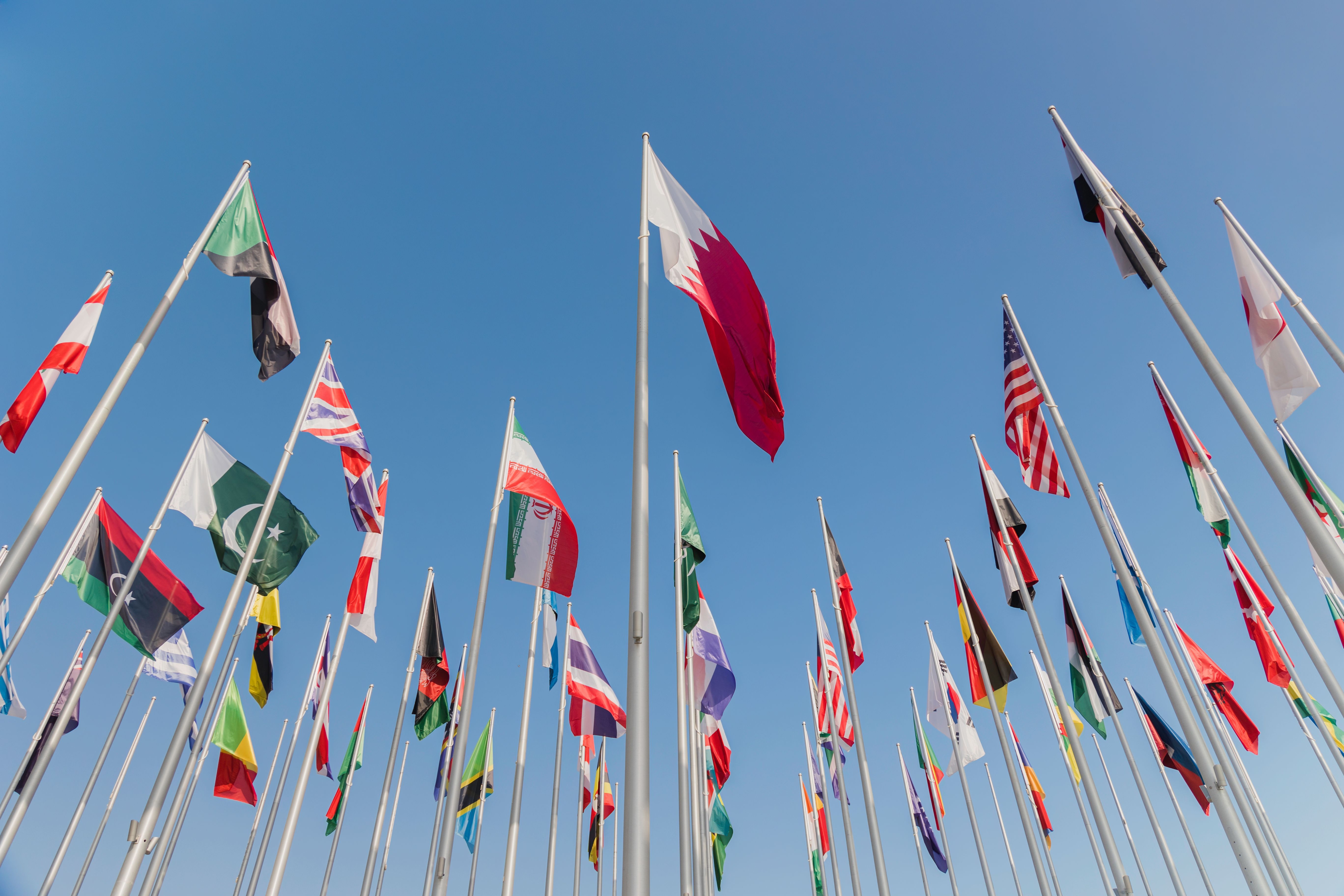In an international context marked by climate urgency and economic inequality, the Seville Commitment establishes a new roadmap for sustainable global financing. This international pact proposes key reforms to the financial architecture, addresses the debt crisis, and mobilizes investment toward the Sustainable Development Goals (SDGs), inviting governments, businesses, and tourism destinations to act with responsibility and a transformative vision.

From June 30 to July 3, 2025, the city of Seville hosted the 4th International Conference on Financing for Development, becoming the stage for a new global pact with a shared ambition: to transform the international financial model and move toward a more just, inclusive, and sustainable future.
The main outcome of the conference was the unanimous adoption of the Seville Commitment, a 38-page document outlining the new roadmap for financing sustainable development. It addresses three fundamental challenges hindering the fulfillment of the 2030 Agenda: the financing gap for the United Nations Sustainable Development Goals (SDGs), the global debt crisis, and the structural inequalities of the international financial system. These are the key pillars of an agreement seeking to change the course.
The foundations of a new financial architecture for the SDGs.

The 2030 Agenda is “in jeopardy”, warned António Guterres, Secretary-General of the United Nations. At the halfway mark to its completion, two-thirds of the Sustainable Development Goals (SDGs) are facing alarming delays, and global progress toward sustainable development has come to a near standstill.
The human consequences of this setback are already visible. “Families going hungry, children not being vaccinated, girls dropping out of school”, Guterres listed, putting faces to a crisis that affects millions around the world.
This scenario is compounded by an increasingly unstable global context, marked by persistent conflicts, the accelerating climate crisis,“a planet on fire”, in Guterres’ own words, and growing distrust in multilateralism.
From the opening of the conference, the message was clear and direct. In his inaugural address, Guterres stated, “This conference is not about charity; it is about restoring justice and ensuring that everyone can live with dignity”. With these words, he urged world leaders to understand that Seville 2025 is not just a matter of funding, but an opportunity to invest collectively in the future we want to build.
Throughout the summit, it became clear that financing sustainable development should not be seen as a voluntary gesture, but as a strategic, fair, and urgent decision to secure a more prosperous, equitable, and resilient future for all nations.
In the face of this fragmented landscape, the Seville conference aimed to demonstrate that international cooperation is not only possible—it is essential to reverse current trends and put people back at the center of global action.
That is why the Seville Commitment is based on a bold statement: without sufficient resources, the Sustainable Development Goals cannot be achieved. Therefore, the signing leaders commit to redirecting global financing toward strategic sectors such as education, health, social protection, renewable energy, and resilient infrastructure.
Among the agreed measures is the commitment to triple the lending capacity of multilateral development banks, such as the World Bank, and to double official development assistance in the coming years. The document also emphasizes the need to strengthen national tax systems, combat tax evasion, and mobilize private investment through public-private partnerships focused on social and environmental impact.
In the words of Ursula von der Leyen, President of the European Commission, “this is about creating new ways to mobilize much more financing to close the trillion-dollar investment gap for the SDGs. The priority is clear: to ensure that funds go where they are most needed and generate real progress”.
Debt relief and global debt restructuring.

One of the most urgent points of the Seville Commitment is its response to the debt crisis affecting more than 60 countries, many of which allocate more resources to interest payments than to investment in essential public services.
The agreement proposes concrete measures such as the creation of a global debt registry, greater transparency in lending conditions, and effective mechanisms to restructure sovereign debt fairly and promptly. It also includes temporary debt service suspensions in emergency contexts such as natural disasters or pandemics and promotes debt-for-development swaps, enabling countries to convert financial obligations into sustainable local investments.
These reforms aim to free up fiscal space so that states can invest in their people and protect their ecosystems, advancing toward a development model that is fair, resilient, and people-centered.
Reforming the international financial architecture.

The third pillar of the Seville Commitment calls for structural change in the rules of the global financial system, advocating for greater equity and participation of developing countries in international decision-making bodies.
Key measures include support for the creation of a borrower’s forum, enabling debtor countries to share learnings and coordinate actions in negotiations with creditors. It also promotes a fairer international tax system, with global taxes on large multinational corporations and new tax models to fund development, such as levies on business-class tickets or high-impact private flights.
All these proposals aim at a renewed global financial framework that closes structural gaps and lays the foundation for a more inclusive, transparent, and just economy.
The Seville Action Platform: Turning commitment into action.

One of the major advances of the summit was the launch of the Seville Action Platform, an open mechanism to transform agreements into real projects on the ground. This platform invites governments, businesses, cities, financial institutions, and civil society to submit voluntary initiatives aligned with the SDGs, with specific, measurable actions and clear funding sources.
More than 130 global initiatives were received in Seville, including climate action debt-swap programs, funds for sustainable infrastructure in vulnerable countries, and international taxes on polluting activities. All proposals will be published and monitored through international forums such as the UN ECOSOC FFD Forum.
This platform offers an opportunity for multiple stakeholders to contribute, in a concrete and transparent way, to financing sustainable development.
Toward a sustainable future, the role of the private sector and responsible tourism.

The Seville Commitment sends a clear message: global sustainability requires the active involvement of the private sector. Parallel to the conference, an International Business Forum (FFD) was held where corporate leaders discussed how to align their investments with the SDGs. The European Global Gateway program was highlighted for promoting private investments with transformative impact in connectivity, clean energy, and local development.
Within this framework, sustainable tourism is recognized as a key sector capable of mobilizing resources, generating employment, and preserving natural and cultural environments. The Action Platform enables companies and tourism destinations to submit concrete plans for decarbonization, circular management, and inclusive development, gaining access to technical resources and international visibility.
Sustainable companies and responsible destinations now find in Seville a roadmap, a collaborative space, and a source of opportunities to drive their purpose with real impact.
SDGs and sustainability at the heart of the Seville Commitment.

The agreement adopted in Seville directly addresses multiple Sustainable Development Goals, including SDG 1 (No Poverty), SDG 3 (Good Health and Well-Being), SDG 4 (Quality Education), SDG 8 (Decent Work), SDG 13 (Climate Action), SDG 16 (Strong Institutions), and SDG 17 (Partnerships for the Goals).
Resource mobilization, financial equity, business innovation, and the creation of new alliances are not only effective strategies—they are essential tools for building a fairer, more resilient, and livable world.
Building with justice, collaboration, and purpose.

For all these reasons, at Biosphere we invite all entities committed to sustainable development to join the global momentum represented by the Seville Commitment. Whether a tourism company, public administration, university, NGO, or destination, your contribution can be an active part of the transformation.
The challenge is immense, but so is the opportunity. We have a solid international framework, innovative tools, and the support of a global community that understands development cannot move forward without equity, participation, or future-oriented vision.
Now is the time to act with determination. To present initiatives aligned with the Sustainable Development Goals—measurable, replicable, and with real positive impact on people and the environment. From investing in education, health, or clean energy, to decarbonizing tourism, protecting biodiversity, or promoting social inclusion in destinations.
Because building the future we want will not be the task of a few. It will be the result of the collective commitment of all who choose to bring solutions with value, vision, and responsibility. Being part of this effort is not only possible—it’s necessary.
Joining the Seville Commitment means contributing to the construction of a new development model. One based on cooperation, financial justice, innovation for the common good, and a genuine will to leave a positive footprint.
We must act now—with justice, with collaboration, and with purpose.













